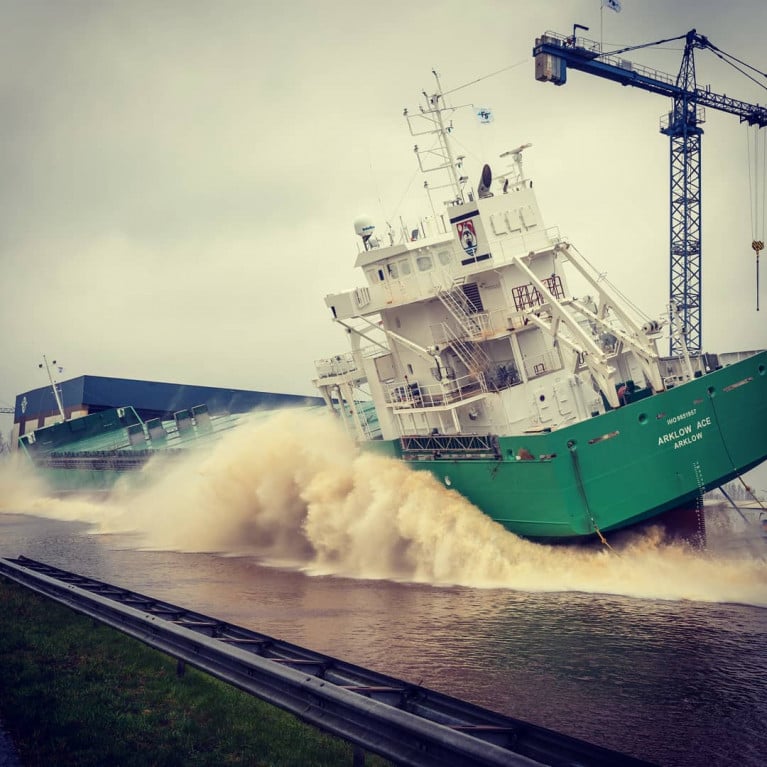Displaying items by tag: Arklow Ace
The latest and third newbuild of the Arklow 'A' class series which is a bulk orientated general cargoship was launched at a Dutch yard, writes Jehan Ashmore.
Arklow Ace (Nb.439) took to the water for the first time as the third of six such ships so far from the Ferus Smit yard at Westerbroek on Friday.
Arklow Ace was christened for owners Arklow Shipping and at the stern the Co. Wicklow town is given as the port of registry. When the newbuild enters service this Irish flagged vessel will expand the fleet to 57 dry-cargo ships including 17 that are Dutch flagged.
Not only is Arklow Ace a new ship but is a first for ASL having this particular 'A' name suffix along with the previously completed sister, Arklow Accord (launched in November). The first of the series, leadship Arklow Abbey (in July) is an exception as the same name was previously used in a vessel dating to 1981 and sold in 1996.
The design of the A series is a slightly modified version of the first series of the 8600dwt bulkers that Ferus Smit built under the name of the Arklow B series.
A modified bow form and hull is adapted for Iceclass 1A conditions. As for propulsion this sees a propeller nozzle added while the main engine output was decreased to 2000 kW for better fuel efficiency.
This ship has the following characteristics:
– Loa = 119.495 mtr
– Lpp = 116.895 mtr
– B = 14.99 mtr
– D = 9.70 mtr
– T max = 7.160 mtr
– Hold volume = 350.000 cft
When Arklow Ace is delivered into service, the newbuild will be primary employed in typical shipments such as wheat, corn and other bulk commodities throughout European waters.




























































